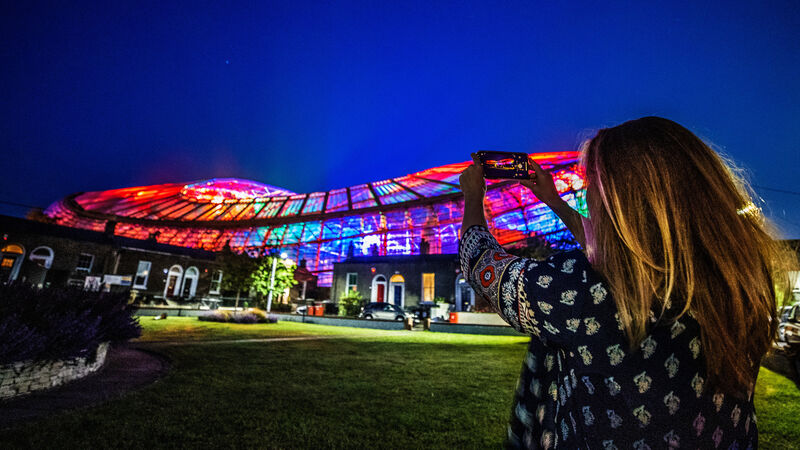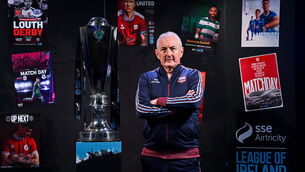Tommy Martin: Respect? Time for Uefa to choose between inclusion and neutrality

SHOW OF SUPPORT: The Aviva Stadium lit up in the rainbow colours of Pride yesterday. Aviva Ireland has teamed up with Intersport Elverys, with rainbow laces available at selected stores and online for €4, with all profits going to BeLonG To Youth Services, the national organisation supporting lesbian, gay, bisexual, transgender, and intersex (LGBTI+) young people in Ireland. Rainbow laces are available to purchase at: https://bit.ly/3z1BYdO.









